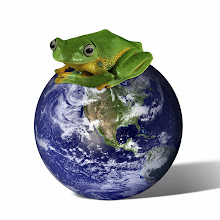1. What exactly is it about the combination of a tongue and larynx, that enables the wonder of human speech?
A bird, without benefit of larynx, can mimic basic human vocalizations.
But neither a bird nor a man can do it without the aid of that soppy thing we call a tongue -- a simplistic-looking strip of flesh that obviously is anything but simplistic. How does the bending and twisting and curling of a tongue alter air patterns to form a, b, c, etc.?
2. What is it within a substance that causes the different reflective waves that we register as varying colors? Why is it that coal reflects a different wave length than a cup of milk?
3. Is it possible to set forth a better pattern for society -- one not motivated by materialism and the plundering of our planet -- yet one that also respects liberty and doesn't crush the human spirit? Or are we doomed to a combined human hell of more pavement, more pollution and more Orwellian tyrannies anchored more firmly by technology?
4. What exactly happens in the brain of someone who commits a heinous crime? Could it be scientifically analyzed, pinpointed, even predicted? What then?
Monday, May 7, 2007
Four Questions for a Monday Morning
Subscribe to:
Post Comments (Atom)















2 comments:
To answer 2:
The question should be "what is it within a substance that causes it to absorb different wavelengths", rather than what causes it to "emit" certain wavelengths. The whole spectrum shines on to the object, and what you see reflecting is everything which it doesn't absorb.
Now, to answer that question...somebody did it for me already, yay!
http://www.newton.dep.anl.gov/askasci/phy00/phy00927.htm
q3)
if it were possible to have a society in which selfish behaviour was significantly reduced, then it might be possible to make one in which materialism motivated people less. not likely, in other words.
'saving' the environment (ie slowing down the rate at which we destroy it) does not necessarily require a loss of liberty, if only politicians started listening to economists' novel solutions to this dilemma. i don't think that life as we live it (with or without the achievement of kyoto or other proposed progressive emissions cuts) is sustainable.
Neither is a pre-industrial-revolution standard of living.
In fact, neither is life in general, if what one has in mind is a species cozily, permanently settled on a one planet, forever self-sufficient. The 2nd law of thermodynamics excludes that possibility.
4) They are overcome by anger, jealousy, hatred, greed etc etc. It can and is being scientifically analysed. Scientists are busy stimulating rage in apes and stuff and analysing brain activity, and trying various methods of predicting and preventing such activity.
What then? If it happened, the crime rate would plummet, and we'll all be a little confused. People will complain about how little crime there is, and long for the freedom to commit antisocial behaviour again? Politicians will debate about it? I don't know, humans will be different at such a time when this is achieved...
Thank you all for your responses. Makes a lot of sense.
Post a Comment